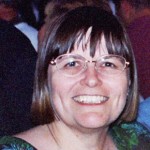Podcast: Personalities of Technical Communicators -- Interview with Deborah (Shapiro) Hemstreet
Download MP3 (to download, right-click and select Save Target As)
Duration: 32 min.
In this podcast, I talk with Deborah (Shapiro) Hemstreet about the personalities of technical communicators, based on research she conducted as part of her masters degree. I got the idea of interviewing Deborah from on a discussion on the Techwr-L listserv about a movie called The Technical Writer. In the discussion, Deborah wrote,
I read the reviews... And it sounds to me (without having watched) that it is a caricature of the stereotypical idea of a technical writer (introverted, neurotic and a geek)... But just the reviews are enough to turn me off to the movie.
Having said that, it made me think of my own research a few years back when I was doing my MA in technical communication... My thesis was on the personality characteristics of technical communicators. It surveyed over 220 technical communicators from around the world. I used a validated personality test based on the five-factor model of personality along with a questionnaire about each person's professional practice, and a demographics section.
I mention this, because of the whole issue of the stereotypical introverted technical writer. My findings were the exact opposite of what we would expect to see. The majority of writers were extroverted. When I correlated professional practice to the personality characteristics, it appeared that effectiveness improved with extroversion, with managers being the most extroverted. The majority of introverts were editors (made sense to me), and only a few rated negatively with regards to what the five-factor model called neuroticism. Interestingly, those few writers ranked low in professional practice.
I find the topic of personalities extremely relevant in our field. At times, technical writers spend much of their day isolated in their cubes writing documentation. They have little interaction with others. Other days, technical writers are constantly interacting with project managers, designers, and other subject matter experts (SMEs). Technical writers are almost investigative journalists, tracking down reluctant SMEs to extract information, influencing product design change, training groups of users on new releases, and voicing opinion during conference-room-packed meetings.
I'm fascinated by Deborah's conclusion about extroversion (which she defines as being open, friendly, and outgoing). Those who are more extroverted tend to be more effective in their careers. In this podcast, we talk about how she measure effectiveness, as well as strategies for personality change. We also discuss neuroticism, and how tendencies toward perfectionism can be detrimental to one's success.
Additional Resources from Deborah
The following links are additional resources from Deborah.
Center for Applied Cognitive Studies
The above link provides information for practical applications of the Five Factor Model of personality. They redefine the OCEAN scores into terminology that is a lot easier to follow and more applicable to technical communicators.
This is a link to the original site where she discovered the test. Anyone can take this test and get their score immediately. The answers will be used for ongoing research. The author of this test gave me permission to use it and felt it would meet my research purposes. I could not provide self-testing with scores, however, as I did not have the use of the scripts that this website provides.
Introversion Turned Inside Out (.ppt)
This is the presentation that she gave with a colleague at the STC Conference two years ago. It provides more information about introversion versus extraversion.
The Secrets of Effective Technical Communicators
Other investigators are now finding support for Deborah's findings.
Contacting Deborah
People are welcome to correspond with Deborah at deborah.hemstreet@gmail.com and to visit her site (currently under development) at www.tech-challenged.com.
Audio Note
I was hoping the audio would be crisper and clearer, but Skype gave me a little trouble. I amplified and balanced the audio as best I could.



